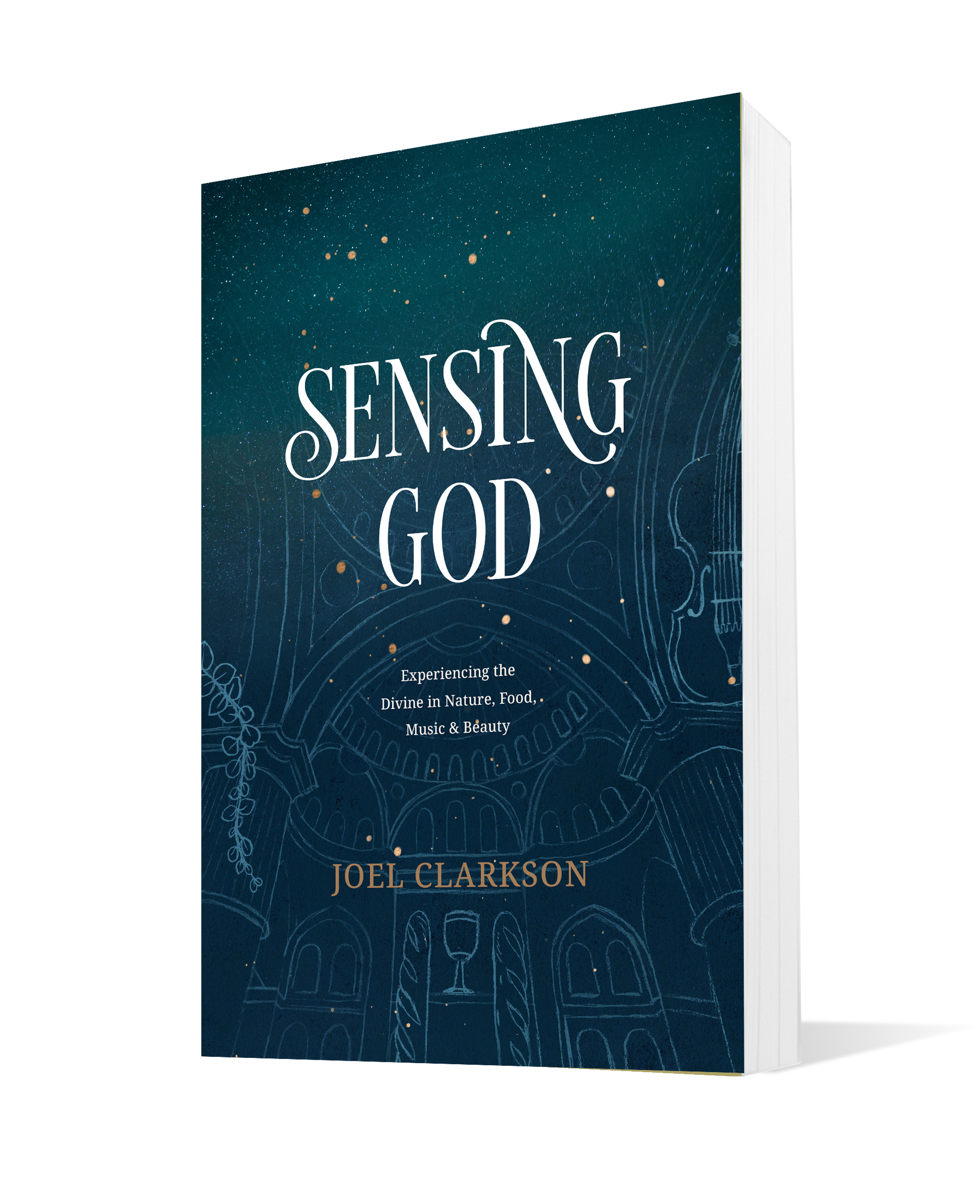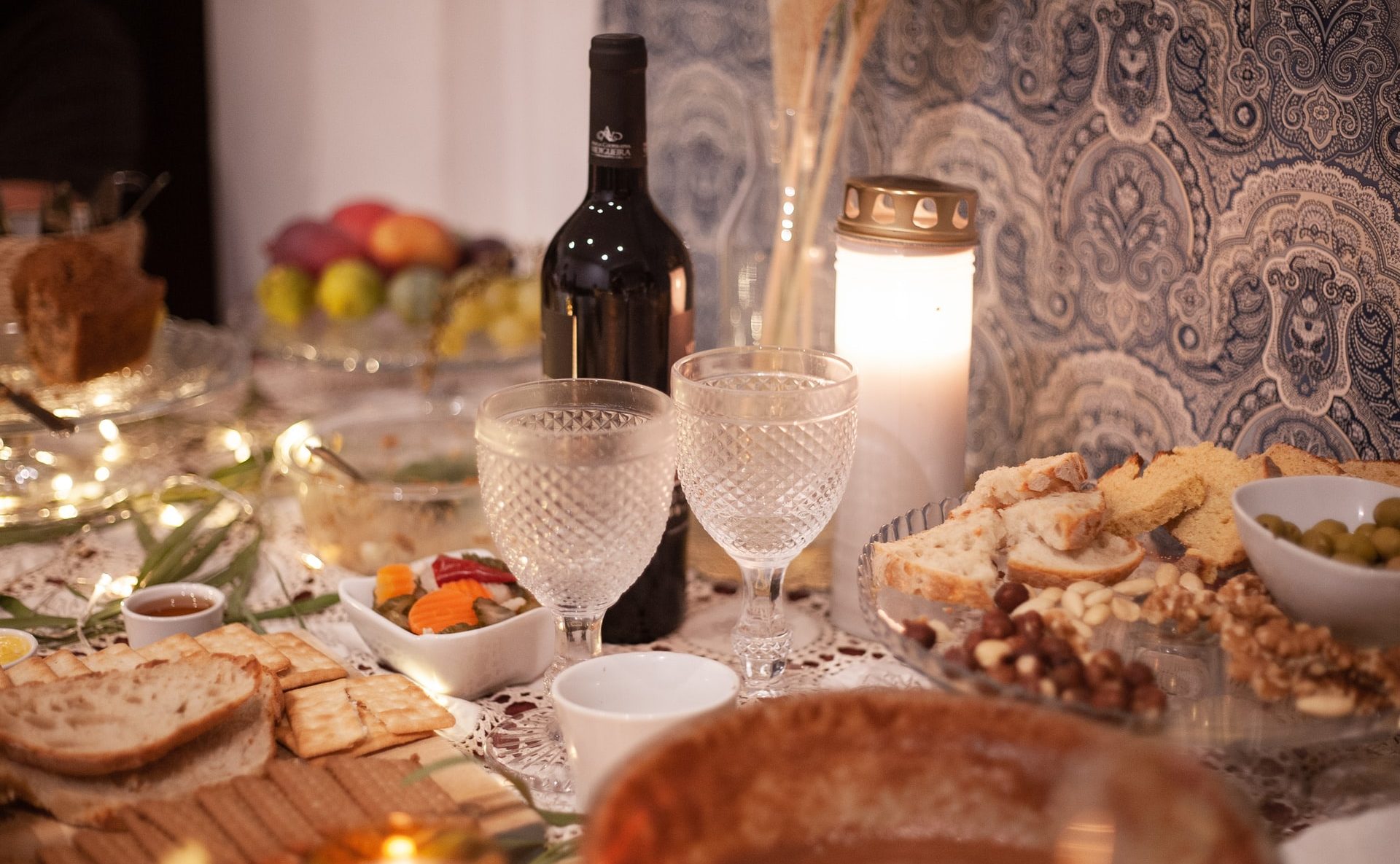One of the oldest traditions in my family is our annual “shepherd’s meal,” celebrated on Christmas Eve. Like the shepherds in the fields might have enjoyed on the night of Christ’s birth, we share in a simple spread of modest, heartening elements. We prepare an assortment of nuts, cheeses, and fruits, along with warm bread straight out of the oven and freshly made potato soup. As we bring all the bounty to the table and gather around it, we light the candles and enter into the simplicity of the story through a reading of Luke 2, the story of the shepherds who receive the message of Christ’s birth from angels.
In our shepherd’s meal, we eat to place ourselves in the midst of the story. Each year, the nourishment of the simple meal we have celebrated many times throughout our lives has become inextricably interwoven into the story of the shepherds themselves, accustomed to quietly attending their own pastoral rhythms, day after day. Like them, we allow our hearts to be inculcated into the modest goodness of a shared evening meal, and to let that posture prepare us to enter the astonishment and wonder at the miracle of the angelic visitation. From the familiar preparation, to the setting of the table, to warm fellowship and enjoyment of the feast, to the reading of Scripture, the shepherd’s meal becomes our reenactment, our way of returning to the posture of humble participation that the meal has engendered in us in past years and which we make new over and over again. And when we partake of the food laid before us on the table, we make that story our own, invite it to become part of us, to nourish us from the inside out. It does more than remind us of the story; it makes it fresh and new to us again. In the feast, we are called to remember.
When we eat at the table, we are, in essence, returning: returning to be nourished and returning to fellowship. We return because we must; we admit that we are not capable of surviving on our own, that we are in need of the food which replenishes our energy and restores us to vitality. The table acts as the gathering place where we recall our need and admit that we must seek the resolution of that need outside ourselves. And equally, when we come together around the table, all who are gathered eat of the same food, declaring, even if tacitly, that this need is a universal one, and we are unified in our belonging to this table through that cycle of departure and return. The table recalls us to our belonging, the space in which we are made one through participating in one meal together.
Remembering is the first and most fundamental role of feasting in the Christian tradition, and it is written into the first statements Jesus makes about the meal of His own table. At the Last Supper, as Jesus prepares to enter the final moments of His life, He gives the meal to His disciples in the upper room as a memorial, a living sign which, though they don’t understand it yet, after the crucifixion, will become an indelible, tangible point of return for them to participate in His love offered completely on the cross. Jesus knows that the disciples have come to this Passover table to remember God’s faithfulness to His people, liberating them from Egyptian oppression and setting them on their journey to the Promised Land. Now, Jesus is transforming that act of remembrance so that forevermore, the disciples—and all who will become Jesus’ disciples thereafter—will participate in that meal as an act of recollection of Jesus Himself. “He took some bread and gave thanks to God for it. Then he broke it in pieces and gave it to the disciples, saying, ‘This is my body, which is given for you. Do this in remembrance of me.’”[i]
Just like the disciples so long ago, the sign of our faithfulness today is not to churn up new ideas, new feelings about God, but rather to return to the signs of His faithfulness given at the very beginning and to participate in them, to call the past into the present of our lives and make it manifest in the here and now. When we eat at the Lord’s Table, when we take the elements of bread and wine into ourselves, in a sense, we allow that moment in the upper room to live again, to become real to us in our own time, through our bodies.
The Anglican Book of Common Prayer powerfully articulates this in a liturgy that comes from its morning prayer liturgy and is used in some churches in festival seasons as part of the Eucharistic liturgy: “Alleluia. Christ our Passover has been sacrificed for us;* therefore let us keep the feast.”[ii] The spirit of this Eucharistic feast isn’t only contained within the conventional bounds of Communion on a Sunday but rather flows out into each and every day.
For what is given at the Table of the Lord is not a one-time action that achieves its given end in perpetuity. Our souls, like our bodies, must return to the Table, for we are prone to forget, prone to grow lean and frail the longer we are away from the one in whom we have life abundant. Our hunger for restoration, for healing, for nourishment, drives us back to the Table of the Lord, the space where we are tangibly recalled to the grace that sustains us. When we eat at the Communion table, we return to the source of our being, remembering that it is only through Jesus’ presence in us that we have been restored to new life; as we eat the bread and drink from the goblet, the tastefulness of that brief meal enters us and recalls us to that inner presence.
Over time, this invitation to remembrance instills within us not only a recollection of the past in the here and now but an equal looking toward the future reconciliation of all life in Christ, when we will all feast at the Table of the Lamb.
[i] Luke 22:19.
[ii] Anglican Church in North America, The Book of Common Prayer and Administration of the Sacraments with Other Rites and Ceremonies of the Church (Huntington Beach, CA: Anglican Liturgy Press, 2019), 16, http://bcp2019.anglicanchurch.net/wp-content/uploads/2019/08/BCP2019.pdf. The asterisk denotes a break in the antiphonal call and response.



